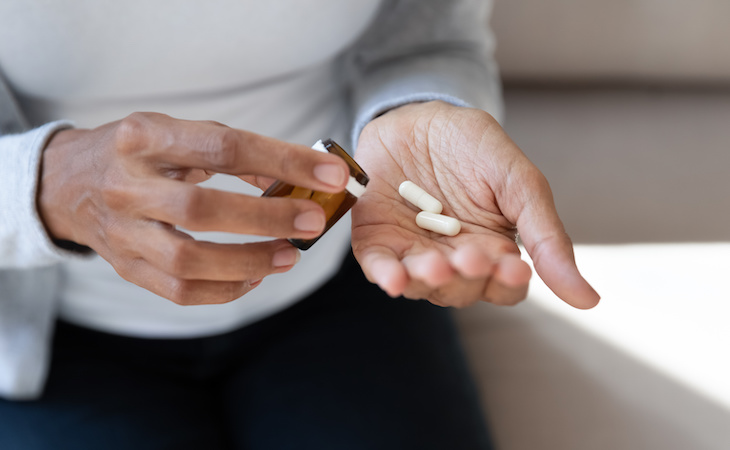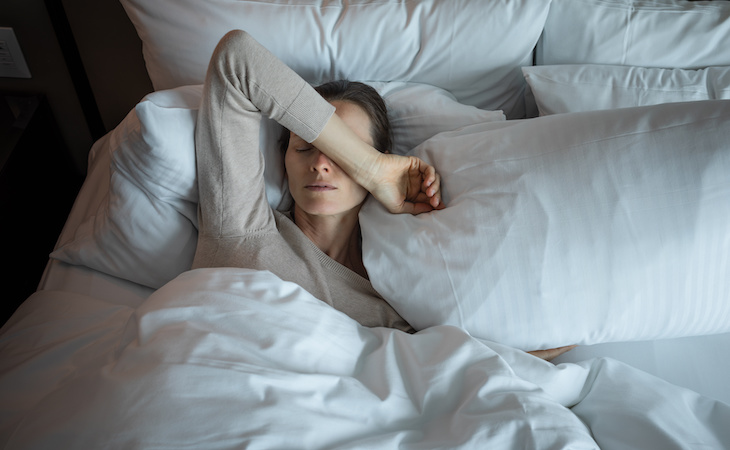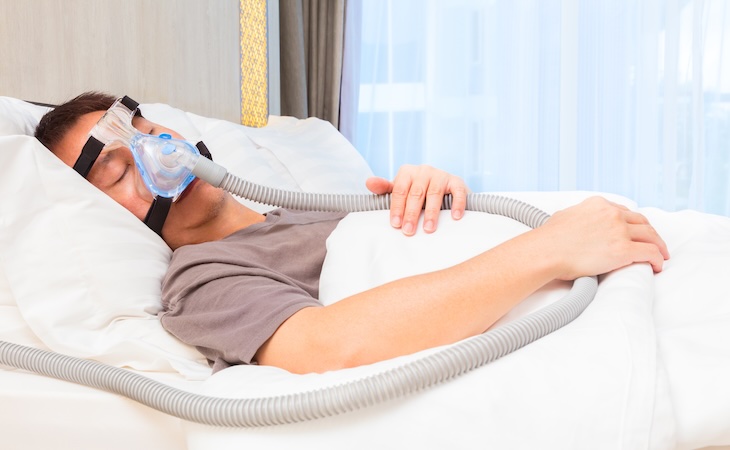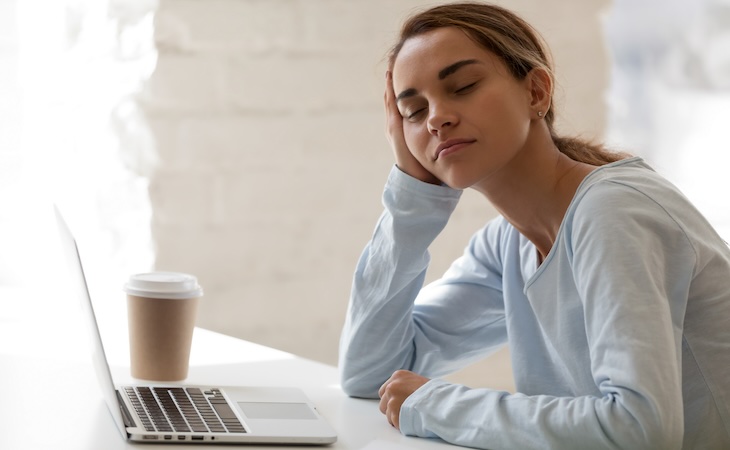There are many things that can affect sleep, from caffeine to blue light to the foods you choose to eat right before bed—but one of the causes you’ve perhaps overlooked is medications. One class of medications that can impact sleep is antidepressants.
If you’re wondering about the connection between a serotonin reuptake inhibitor (SSRI) and sleep, read on and explore how antidepressants affect sleep. Plus, learn what you can do to mitigate any unwanted side effects, with the help of your doctor.
The link between antidepressants and sleep
Antidepressants can actually change the chemistry of the brain in an effort to decrease the symptoms of depression—and in the process, they can change the chemicals that impact sleep. In fact, studies show most antidepressants change sleep. And it’s something physicians should be aware of, whether the antidepressant is affecting sleep quality or worsening certain sleep disorders, such as nightmares, restless legs syndrome, bruxism, and sleep apnea, as a 2017 study points out.
“Depression is almost always accompanied by disordered sleep and many antidepressants affect sleep architecture independently,” says Thomas Franklin, MD, president and CEO of MindWork Group and member of the Group for the Advancement of Psychiatry. This means depression can negatively affect sleep while the antidepressants to ease that depression can also influence sleep.
While some antidepressants can negatively impact sleep, some can positively change it—especially when antidepressants resolve a depressive episode and the sleep problems that can go along with it. This can include sleeping too much or sleeping too little. People may find that finally, their sleep has equalized.
In general, as Franklin says, antidepressants are either sedating or activating as a side effect. Some common SSRIs “will often activate patients at first and cause temporary insomnia,” adds Franklin.
Meanwhile, a group of antidepressants called serotonin/norepinephrine reuptake inhibitors can be quite activating. Finally, Franklin says older antidepressants called tricyclics can be very sedating.
For most people, Franklin says sleep-related side effects often resolve in a few weeks. But for some patients, these side effects can be long-lasting.
How to keep antidepressants from ruining your sleep
If your antidepressant is causing you to experience insomnia—or if it’s having a sedating effect and you’re sleeping too much, leading to a groggy, fatigued feeling—you should know there are things you can do to improve your sleep.
- At the start, before taking an antidepressant, Franklin says to make sure you ask for one “that has a side effect profile that will help your depressive symptoms.” In other words, if you’re constantly tired, take an activating medication. If you’re awake all night, take a sedating medication.
- Since antidepressants can take several weeks to work, try your best to be patient as the side effects work their way through your system. Otherwise, if you’re not experiencing any relief, Franklin recommends asking for a lower dose of the medication. “Sometimes a combination of medicines in lower doses are actually more effective and better tolerated than a high dose of a single medication,” he says.
- Franklin urges people taking antidepressants to be clear with their healthcare providers if they’re either experiencing insomnia or are tired all the time.
FAQs
Can you take sleeping pills and antidepressants?
Wondering if you can combine an antidepressant and a sleep aid? Franklin says yes—but sleeping pills should be taken sparingly and for a short time as they can cause long-term sleep issues and many are habit-forming. Ask your psychiatrist about any potential interactions before taking a sleep aid.
What antidepressant helps with anxiety and sleep?
As for the best antidepressant for sleep and anxiety, there isn’t really a single answer. Most antidepressants can help with anxiety and sleep if taken in appropriate doses as part of a comprehensive treatment plan, according to Franklin—but individual reactions and results will vary. “People’s brains are quite different,” he says.
Sleep plays a large role in mental health—and sleep deprivation can lead to worsened mental health. Get tips for improving sleep and mental health.




